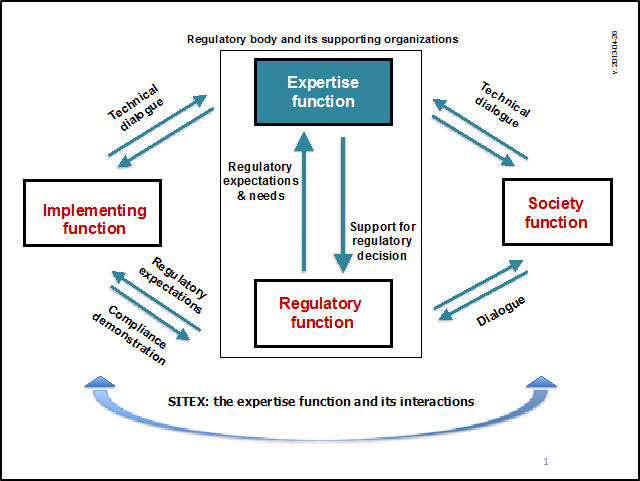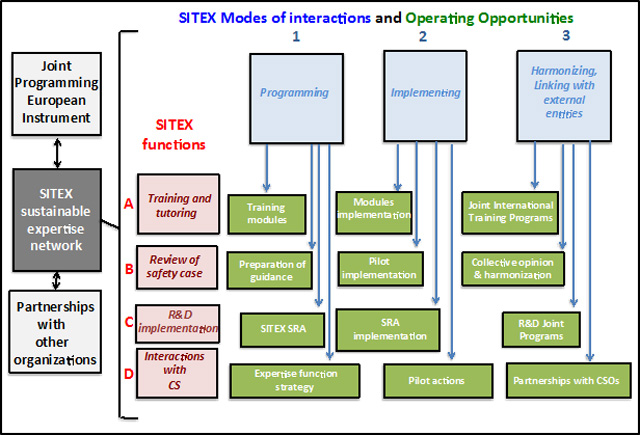The European Council Directive 2011/70/EURATOM of 19 July 2011 establishes a Community framework for the responsible and safe management of spent fuel and radioactive waste. It also states that it is broadly accepted at the technical level that, at this time, deep geological disposal represents the safest and most sustainable option as the end point of the management of high-level waste and spent fuel considered as waste.
In line with this Directive and in consistency with international high level safety standards issued by IAEA and WENRA, and with international approaches developed within the NEA/RWMC activities, waste management organisations (WMOs) are developing a Safety Case for presenting the technical and organisational arguments that support the development of the national geological repository concept. As safety cases develop, the Safety Case Review by regulatory bodies in the framework of the decision making process develops as well. The assessment of the scientific and technical issues developed by the WMOs requires specific skills from the assessor in order to evaluate whether they allow compliance with the safety requirements issued by the regulatory authority. In that context, there is a need at the international level for developing and coordinating activities associated to the regulatory review process of deep geological disposal. For that purpose, a number of initiatives, projects and groups of experts at international and European level have been launched as for example ENSREG, WENRA, NEA/RWMC/Regulator Forum, IAEA/GEOSAF and GEOSAF2.
In 2012, the EURATOM FP7 SITEX project (2012-2013) was launched in order to complement the above mentioned initiatives with the view to characterize at national level the Expertise function (Figure 1) activity devoted to the scientific review of the Safety Case with respect to the safety of the geological disposal.
For detailed information on SITEX project (2012-2013) click here.

In line with highlighted different needs and missions of the national Expertise function along the decision making process, the approach for future communication and interaction to support Expertise function was proposed in terms of sustainable network for independent technical expertise (SITEX). The potential areas of cooperation, exchanges or sharing of resources that could be developed by a future SITEX network were identified; the modes of interactions were presented.
The general objective of the SITEX network is to constitute a sustainable European and international cooperation in order to support a robust and reliable expertise function at national level in the field of safety of radioactive waste disposal.

In 2015, Horizon2020 SITEX-II project was launched ("Sustainable network for Independent Technical Expertise of Radioactive Waste Disposal - Interactions and Implementation", 2015-2017). Its overall objective is the practical implementation of the sets of activities along with the interaction modes issued by the FP7 program SITEX project (2012-2013), in view of developing at European and international level the Expertise function network. This network is expected to ensure a sustainable capability of developing and coordinating joint and harmonized activities related to the independent technical expertise in the field of safety of geological disposal of radioactive waste.
For detailed information on SITEX-II project (2015-2017) click here.